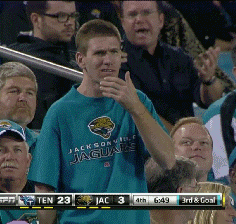Exclusive - Goldman, JPMorgan in Senate's crosshairs for commodities holdings

39 minutes ago
By Patrick Rucker
WASHINGTON (Reuters) - U.S. Senator Carl Levin is preparing a last push to bring Wall Street's big commodity traders to heel during his final months in office, wrapping up a nearly two year-long probe that could potentially reveal abuses in energy and metals markets.
Levin's investigators have met with representatives from Goldman Sachs (GS.N) and JPMorgan Chase (JPM.N) in recent weeks, according to sources familiar with the matter.
Executives from those companies may appear at a hearing as early as September, during which Levin's Permanent Subcommittee on Investigations would present the findings of the probe, the sources said.
Spokesmen for Goldman and JPMorgan declined to comment.
Specifically, Senate investigators have explored whether Wall Street has abused its commodities holdings at the expense of clients, consumers, the environment or the health of the market, according to the people familiar with the probe.
The probe's findings and the possible hearing will add to the scrutiny Wall Street firms have already faced from the Federal Reserve and from other lawmakers over whether it is appropriate for banks to maintain vast holdings in metals warehouses and other physical commodities businesses.
Companies including MillerCoors LLC and The Coca-Cola Co (KO.N), for example, have accused warehouses and their owners of distorting supplies, inflating the prices of aluminium, and costing consumers billions of extra dollars annually.
Wall Street has found it lucrative to have a hand in both the trading and delivery of commodities but some investment banks have retreated from parts of the businesses as they have become the focus of lawsuits, regulatory scrutiny and public outrage.
JPMorgan has sold its physical trading business and Goldman is selling its metals storage company but the banks have not dropped all such holdings.
FINAL TARGETS
Banks' commodities businesses is one of the final targets for Levin, who is retiring at the end of this year after serving on the powerful investigations panel for around 15 years.
Levin said in an interview on Thursday that he expects to conclude his work on Wall Street and commodity investments before he departs.
"We are looking at the physical commodities issue. There may be one other (issue to investigate), but I don't want to say what it might be," said Levin, a Michigan Democrat. He declined to elaborate.
Levin's panel began examining the commodities market in late 2012, after several months of growing complaints from metals users and following a Reuters story that highlighted a behind-the-scenes struggle between the banks and the Fed over commodity trading.
A front-page New York Times story and a Senate Banking subcommittee hearing in mid-2013 added to the pressure, and the Fed said early this year that it was likely to push forward with new measures to limit banks' involvement in the raw materials supply chain.
BEYOND BANKS' STABILITY
While the Fed has examined whether Wall Street's broad ownership of mines, wells or other physical assets could present a risk to a bank's solvency, Levin said his questions go deeper.
"We are looking at many aspects of physical commodities... It is broader than safety and soundness," Levin said, using a regulatory term for bank stability.
The Senate returns from summer recess in early September and sources said a hearing on the commodity issue is likely in the second or third week of that month.
Levin took control of the oversight panel for the second time in 2007 and has often excoriated Wall Street executives about their business tactics, use of tax loopholes and other perceived abuses.
Over four, politically-charged hearings in April 2010, Levin summoned regulators and Wall Street executives to answer for their behaviour during the global financial crisis.
In March 2013, he grilled executives from JPMorgan about trades that led to $6.2 billion losses known as the "London whale" trades.
Such hearings can shine an important spotlight on regulatory failings and wrongdoing, Levin said.
(Additional reporting by Douwe Miedema David Lawder in Washington; Editing by Karey Van Hall and Frances Kerry)
Under pressure

Commodities are dead on the Street. I remember reading about Goldman's scheme to distort aluminum prices last year. More fines are coming down.







 Commodities are dead on the Street. I remember reading about Goldman's scheme to distort aluminum prices last year. More fines are coming down.
Commodities are dead on the Street. I remember reading about Goldman's scheme to distort aluminum prices last year. More fines are coming down.